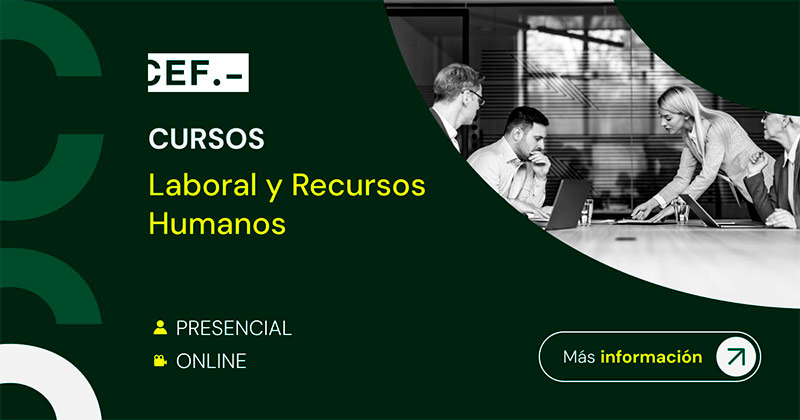Sostenibilidad humana de la sociedad y de la empresa: ¿vasos comunicantes?
Premio «Estudios Financieros» 2018 en la modalidad de Recursos Humanos
La gestión sostenible de los recursos humanos es una línea de investigación novel que se está desarrollando intensamente en la actualidad. Una de las proposiciones clave de la literatura que versa sobre esta cuestión es la interdependencia entre sociedad y empresa, apareciendo una relación causal bidireccional entre el grado de sostenibilidad de ambas entidades. Paradójicamente, faltan estudios empíricos que avalen esta conexión. El objetivo de esta investigación es enmendar esta carencia, analizando si la pobreza y la desigualdad económica de la sociedad influyen en la estrategia de gestión de los recursos humanos de las empresas y viceversa. A partir del análisis longitudinal de una amplia muestra de 1.850 empresas industriales españolas durante el periodo 2010-2014, se corrobora la presencia de una relación bidireccional negativa entre la pobreza y la estrategia basada en el compromiso organizativo con los empleados. Por otra parte, se evidencia una relación causal unidireccional negativa entre esta estrategia de gestión de los recursos humanos y la desigualdad económica. Estos resultados respaldan el papel activo y significativo de las empresas en la consecución de un desarrollo sostenible de la sociedad, de tal forma que cuanto más sostenible sea la gestión de los recursos humanos de las empresas, más sostenible será la sociedad.
Palabras clave: pobreza; desigualdad económica; gestión de los recursos humanos; sostenibilidad; empresa y sociedad; análisis longitudinal.
Vicente Roca Puig
Profesor titular del área de Organización de Empresas.
Universidad Jaume I
Puede adquirir este documento en la página web ceflegal.com
RTSS. CEF. NÚMS. 425-426 (agosto-septiembre 2018)
Referencias bibliográficas
Ashkanasy, N. M., Humphrey, R. H. y Huy, Q. N. (2017). Integrating emotions and affect in theories of management. Academy of Management Review, 42, 175-189.
Athanasopoulou, A. y Selsky, J. (2015). The social context of corporate social responsibility: Enriching research with multiple perspectives and levels. Business & Society, 54, 322-364.
Bourguignon, F. (2004). The poverty-growth-inequality triangle. Agence Française de Développement, Paris.
Cobb, J. A. (2016). How firms shape income inequality: Stakeholder power, executive decision making, and the structuring of employment relationships. Academy of Management Review, 41, 324-348.
Cobb, J. A. y Stevens, F. G. (2017). These unequal states: Corporate organization and income inequality in the United States. Administrative Science Quarterly, 62, 304-340.
Combs, J., Liu, Y., Hall, A. y Ketchen, D. (2006). How much do high-performance work practices matter? A meta-analysis of their effects on organizational performance. Personnel Psychology, 59, 501-528.
Ehnert, I., Harry, W. y Zink, K. J. (2014). Sustainability and HRM. En Ehnert, I., Harry, W. y Zink, K. J. (Eds.), Sustainability and Human Resource Management. CSR, Sustainability, Ethics & Governance. Springer, Berlin Heidelberg, 3-32.
Ehnert, I., Parsa, S., Roper, I., Wagner, M. y Muller-Camen, M. (2016). Reporting on sustainability and HRM: A comparative study of sustainability reporting practices by the world’s largest companies. International Journal of Human Resource Management, 27, 88-108.
Florea, L., Cheung, Y. H. y Herndon, N. C. (2013). For all good reasons: Role of values in organizational sustainability. Journal of Business Ethics, 114, 393-408.
Gollan, P. J. (2005). High involvement management and human resource sustainability: The challenges and opportunities. Asia Pacific Journal of Human Resources, 43, 18-33.
Gouldner, A. (1960). The norm of reciprocity: A preliminary statement. American Sociological Review, 25, 161-178.
Huselid, M. A. (1995). The impact of human resource management practices on turnover, productivity, and corporate financial performance. Academy of Management Journal, 38, 635-672.
Jabbour, C. J. y Santos, F. C. (2008). The central role of human resource management in the search for sustainable organizations. International Journal of Human Resource Management, 19, 2.133-2.154.
Jiang, L. y Probst, T. M. (2017). The rich get richer and the poor get poorer: Country-and state-level income inequality moderates the job insecurity-burnout relationship. Journal of Applied Psychology, 102, 672.
Kast, F. E. y Rosenzweig, J. E. (1972). General systems theory: Applications for organization and management. Academy of Management Journal, 15, 447-465.
Kramar, R. (2014). Beyond strategic human resource management: Is sustainable human resource management the next approach? International Journal of Human Resource Management, 25, 1.069-1.089.
Leana, C. R. y Meuris, J. (2015). Living to work and working to live: Income as a driver of organizational behavior. Academy of Management Annals, 9, 55-95.
Little, T. D. (2013). Longitudinal structural equation modeling. Guilford Press, New York.
Llano, J. C. (2017). El estado de la pobreza. Seguimiento del indicador de riesgo de pobreza y exclusión social en España. EAPN (European Anti-Poverty Network), España, Madrid.
Mariappanadar, S. (2014). The model of negative externality for sustainable HRM. En Ehnert, I., Harry, W. y Zink, K. J. (Eds.), Sustainability and Human Resource Management. CSR, Sustainability, Ethics & Governance. Springer, Berlin Heidelberg, 181-203.
Miller, D. y Lee, J. (2001). The people make the process: commitment to employees, decision making, and performance. Journal of Management, 27, 163-189.
Pfeffer, J. (2010). Building sustainable organizations: The human factor. Academy of Management Perspectives, 24, 34-45.
Piacentini, M. (2014). Measuring income inequality and poverty at the regional level in OECD countries, Statistics Working Papers, 2014/03, OECD (Organisation for Economic Co-operation and development) Publishing, Paris.
Pitesa, M., Thau, S. y Pillutla, M. (2017). Workplace trust as a mechanism of employee (dis)advantage: The case of employee socioeconomic status. Research in Organizational Behavior, 37, 83-101.
Renwick, D. W., Redman, T. y Maguire, S. (2013). Green human resource management: A review and research agenda. International Journal of Management Reviews, 15, 1-14.
Roca, V. (2016). ¿Obtienen mejores resultados las empresas en una sociedad empobrecida? Evidencia empírica en España. RTSS.CEF, 403, 187-224.
Sharma, S. y Ruud, A. (2003). On the path to sustainability: Integrating social dimensions into the research and practice of environmental management. Business Strategy and the Environment, 12, 205-214.
Westerman, J., Vanka, S., Rao, M. B. y Gupta, M. (2017). Sustainable HRM: Perspectives, practices, and prognoses. Human Resource Management Review, Call for Papers.
Węziak-Białowolska, D. (2015). Poverty in the regions of the European Union - Measurement with a composite indicator. Contemporary Economics, 9, 113-154.
Wilkinson, R. G. y Pickett, K. E. (2017). The enemy between us: The psychological and social costs of inequality. European Journal of Social Psychology, 47, 11-24.
Zink, K. J. (2014). Social sustainability and quality of working life. En Ehnert, I., Harry, W. y Zink, K. J.
(Eds.), Sustainability and Human Resource Management. CSR, Sustainability, Ethics & Governance. Springer, Berlin Heidelberg, 35-55.







